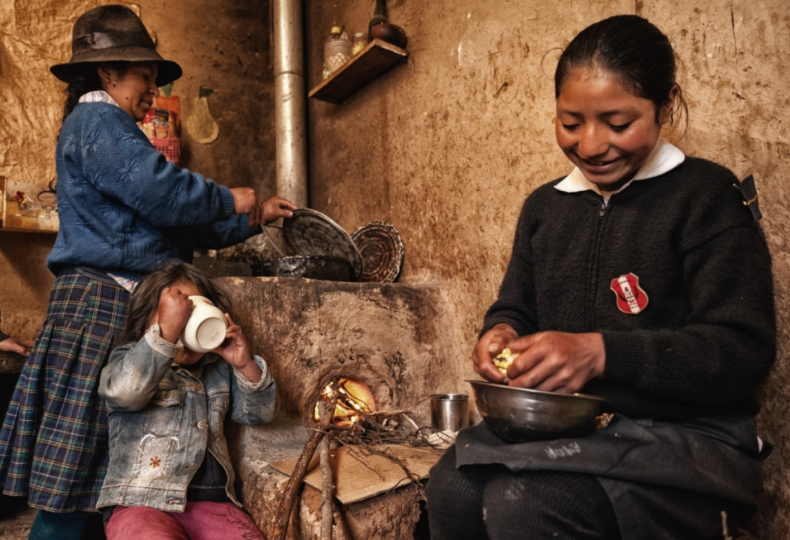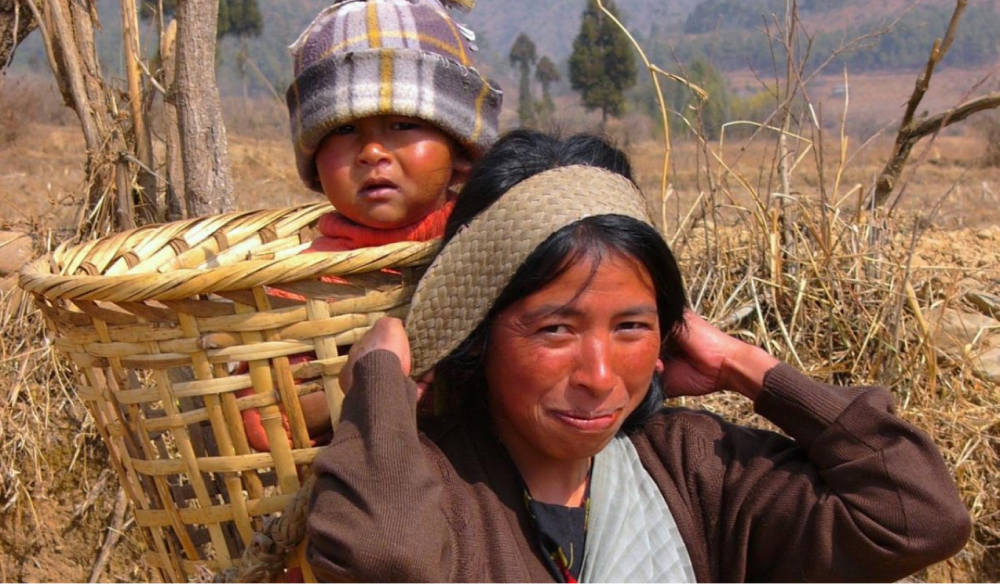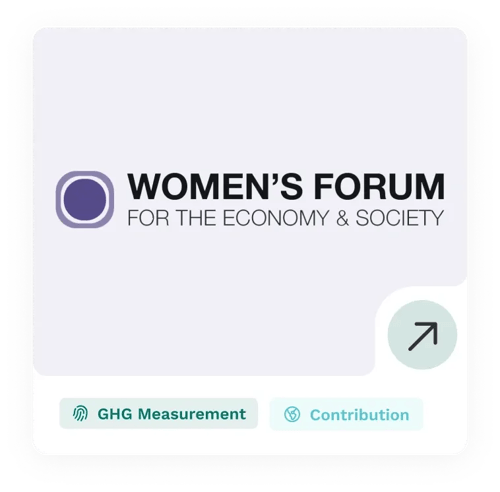Women's Forum
Since 2019, ClimateSeed has partnered with Women's Forum's actively to inclus highlight the link between climate change and gender equality (SDG5). It also worked to assess and reduce the Women's Forum's carbon footprint each year and to support support projects with equality positive environmental and gender equality.
Keys elements
2005
Founding Date
+17
Global annual meetings
+175
Countries represented
The main initiatives
Over the past three years, Women's Forum has collaborated with ClimateSeed to address the gendered impact of climate change.
With women representing 80% of climate refugees, this partnership highlights the critical link between climate action and gender equality, while leveraging ClimateSeed's expertise to assess its carbon footprint and set ambitious reduction targets.
Women and Climate Refugee Imbalance
Around 80% of climate refugees are women, with significantly lower survival odds than men in climate-related disasters, highlighting their vulnerability in climate-induced migrations (United Nations High Commissioner for Refugees). It often leads men to seek opportunities elsewhere, leaving women responsible for their families' well-being in precarious conditions.
Women in Low-income Countries
In low-income countries, where 48% of agricultural workers are women, they often hold insecure roles in climate-vulnerable sectors (agriculture, fisheries, and forestry), which, in turn, impacts their livelihoods and employment.
Health Impacts and Gender Disparities
Climate change from 2030 to 2050 is projected to increase annual deaths by 250,000, particularly affecting vulnerable groups like women due to climate-induced food shortage and malnutrition. Gender-specific mortality rates after climate disasters differ, yet women's responses are often constrained by social disadvantages.
Gendered Education Challenges
Climate mitigations have negative effects on human capital, with distinct impacts on women and girls. After disasters or droughts, women may prioritize household demands, like water or fuel collection, over education due to resource scarcity caused by climate change.
Gender Gap in Climate Leadership
Women's underrepresentation in climate leadership is evident, with only 34% of COP26 committee members being women, and just one female decision-maker at the 2021 G7 Summit, emphasizing the urgency of gender equality in shaping climate policies.
Women's Leadership Boosts Sustainability
By choosing a central location in Paris, providing temporary parking for bicycles, encouraging car-sharing and favoring rail over the air in partnership with European rail companies.
Who is Our Support For?
Whether you are an SME, a mid-sized company, or a large corporation, a beginner or already an expert, we tailor our support to your challenges and your level of maturity.
Businesses
Maturity Level
Multi-Sector
Decarbonization Partnership Report
Over the past three years, ClimateSeed has been the Women's Forum's decarbonization partner.
As part of this collaboration, we present to you the sustainable commitments made.
Measuring the Women's Forum Carbon Footprint
The Women's Forum and ClimateSeed have joined forces as Climate Action partners, united in their mission to tCO2e support the climate and gender equality nexus.
This partnership is built on three fundamental pillars:
-
ClimateSeed has become a member of the Daring Circle Women4ClimateAction, a group promoting solutions and initiatives to empower women to lead action against climate change, and to accelerate the transition to a greener economy. ClimateSeed actively contributed to two pivotal papers on climate-gender action.
-
Women's Forum has sought the expertise of ClimateSeed to assess its carbon footprint and establish reduction targets.
-
Women's Forum supported carbon avoidance and removal projects with a strong positive impact on gender equality.
Carbon Reduction Initiatives
The Women's Forum is an international network founded in 2005 in Paris, dedicated to amplifying women's influence in global economic, environmental, social, and societal matters. Through partnerships with corporations, cultural figures, media leaders, and NGOs, it promotes women's leadership and addresses strong issues such as diversity, inclusion, and sustainable development. This inclusive forum encourages collaboration, innovation, and dialogue, making a significant impact on gender-related discussions and global positive change.
Sustainable Commitments
The Women's Forum, focused on gender issues, now recognizes the robust connection between gender equality and climate change. Climate change disproportionately impacts women, who are often the majority among the world's poor and heavily reliant on threatened natural resources. Gender disparities in roles, responsibilities, decision-making power, and resource access further compound this issue. Women globally have limited access to crucial resources like land, credit, technology, and decision-making structures, hindering their climate adaptation.
In its 2019 report, the Women4ClimateAction Daring Circle:
- Explores future scenarios, examining the impacts of climate action and women's access to economic and social resources.
- Highlights the crucial role of women's leadership across sectors in driving innovative and inclusive climate solutions.
- Emphasizes the importance of women's equal participation alongside men in climate initiatives to accelerate the adoption of sustainable practices and business models.
- Promotes equity and aligns with the objectives of the Paris Agreement.
- Ultimately, it underscores that the well-being of women is fundamental to a thriving planet.
Our Methodology
Carbon accounting categorizes GHG emissions resulting from human activities according to defined boundaries, taking into account time, organization, and function.
The GHG Protocol and the BEGES are widely used for this purpose, primarily for emissions related to organizations, but also for GHG assessments related to events.
ClimateSeed has built its framework using these methodologies as a reference. By adhering to their principles regarding scope, calculations, and categorizations, while considering event-specific data and reporting requirements.
Projects supported
by Women's Forum

Cookstoves Project in Peru
This carbon avoidance project targets impoverished households living 2,500m above sea level. It offers them cleaner and more efficient cookstoves, requiring significantly less wood. These new stoves burn wood more effectively, featuring chimneys that naturally vent smoke from homes. This has led to improved child health due to reduced indoor smoke exposure. On average, each stove consumes 1.9 tonnes less wood per family annually.
This saves families money on fuel costs and preserves local forests.

REDD+ Project in India
This carbon avoidance project is dedicated to conserving and restoring community forests through financial incentives and support. Operating in a global biodiversity hotspot that shelters numerous endangered species, the project also implements sustainable strategies to alleviate extreme rural poverty.
It plays a vital role in establishing 52 microfinance institutions run by women, in addition to manufacturing and installing fuel-efficient cookstoves. This effort, benefiting the majority of the 5,000 households in the project area, reduces fuelwood consumption and indoor smoke pollution, thereby enhancing both forest and family well-being. Notable accomplishments encompass the safeguarding of 27,000 hectares of forest land.
